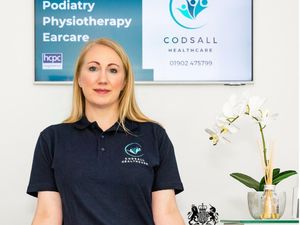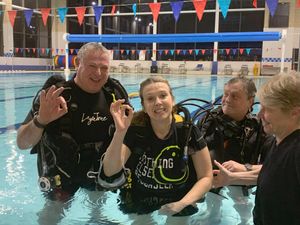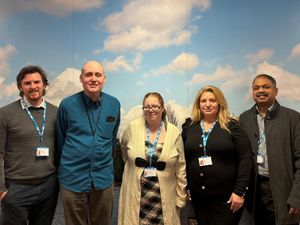Medical hub for blood cancer patient celebrates successful year
A MEDICAL hub treating blood cancer sufferers has celebrated its 'dramatic impact' on treatment following a multi-million pound expansion.

The Centre for Clinical Haematology (CCH), based at Birmingham's Queen Elizabeth Hospital, has doubled in capacity since expanding 12 months ago.
It means thousands of patients across the region battling blood cancers have benefitted from better access to lifesaving treatments.
Dr Fiona Clark, clinical service lead for haematology at the CCH, said: "The expanded centre has been transformational already but we see this as just the start.
"We have seen the benefits of having clinicians, research nurses, therapy nurses and research teams all under one roof and this has been the catalyst for a vastly improved patient pathway and experience.
“The increased capacity will allow further innovation and improvement in the care we can provide.
“Birmingham and the West Midlands should be very proud to have this globally significant centre of excellence in blood cancer on its doorstep.”
The £3.4 million expansion was funded by by the Greater Birmingham and Solihull Local Enterprise Partnership, Cure Leukaemia and University Hospitals Birmingham NHS Foundation Trust.
It launched last January and was officially opened by HRH The Earl of Wessex six months later.
More than 9,600 patients have been supported at the improved centre over the past 12 months, with chemptherpay waiting times reduced from three hours to 30 minutes.
A total of 10 new clinical trials have opened and patient treatments have increased from 10,000 to 19,000.
Cure Leukaemia chief executive officer James McLaughlin said: "It is fantastic to see the progress that has already been made since the CCH reopened and everyone associated with the charity is very proud to have played a major role in making this possible.
"It is vital that we continue to support the clinical teams that operate within the CCH and we are constantly striving to find new ways to fund the growth and innovation that is possible as a result of the centre.”
Established in 2006, the centre has run more than 60 groundbreaking trials, providing more than £30m of free drugs which would otherwise not have been funded by the NHS.
The expansion saw the centr bring clinical facilities under one roof, with the addition of new research facilities, two clinic rooms – housing new treatment and phlebotomy chairs – as well as increasing infusion capacity by another 24 chairs.
A total of 25 jobs have since been created in the life sciences sector, with an additional 70 jobs in the pipeline.
Patients taking part in trials have also had access to more than £10 million in free drugs.





